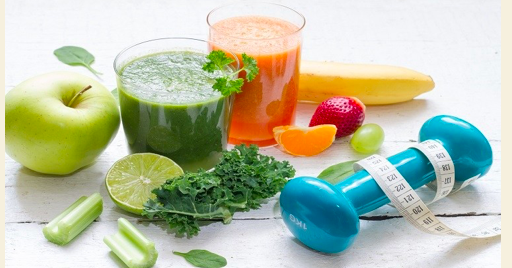Sports nutrition has several myths, fads and fallacies. Athletes have varied dietary practices influenced by their peers, coaches, regions, culture. It is important to teach them what is essential to them.
Myths to facts in sports nutrition
Eating to compete involves a lot of myths since ancient days. There are stories where athletes binge on egg whites, drink gallons of milk to gain muscle, refrain from drinking water to lose weight and many more. Every sportsperson strives to excel and eyes the podium finish.
As a Sports Nutrition consultant- I come across many myths, food fads that are passed on like a baton to athletes by peers, seniors and trainers. Here is an attempt to clarify certain myths with adept scientific evidence.
Myth 1: “You need to consume a sports drink if you exerciseâ€
The Fact is if you exercise only for an hour plain water is enough to re-hydrate. If you exercise or workout for long hours or at very high intensity in hot and humid conditions- sports drinks are necessary. Also, simple home-made sherbets, lime water, coconut water, neera are also good drinks that can help you recover and rejuvenate from an intense bout of exercise.
Myth 2: “Binge Protein to gain muscleâ€
The fact is Exercise initiates muscle building. Muscle protein synthesis and breakdown is a simultaneous and continuous process. Protein requirement depends on exercise intensity, duration, training status, protein quality. Protein need varies from 1.2 to 2.0g/Kg of body weight variable for each sport. However, do not binge on protein research suggests that our body can use an assimilate only 20-25g of protein at a time. Aim to eat 20-25g of protein immediately after exercise depending on the training. The protein should be obtained from high quality sources like sources like milk, cheese, paneer, soya, multi-grains, pulses in vegetarians and eggs, fish, poultry and meat in non-vegetarians. However, remember excess protein if it comes from supplements, meat it can cause kidney damage, dehydration, atherosclerosis, bone loss and toxicity.
Myth 3: “Carbohydrate loading is a must to succeed in any sportâ€
The fact is carbohydrate loading was one of the strategies used by endurance athletes to enhance sports performance. However, it is not applicable to other power, strength, racket or team sports. Athletes from these sports also need a good supply of protein, and good fats to sustain activity. The carbohydrate need per day can range from 5 to 8g/Kg body weight. In competitive phase there is a need to incorporate foods rich in complex carbohydrates like a dalia porridge, ragi malt, sweet potatoes that can help individuals to sustain activity. Excessive intake of carb based meals prior to competition can also slightly increase weight and cause discomfort in competition.
Myth 4: “Skipping meals, fluids, results in quick weight lossâ€
Weight management is extremely important to succeed in a sport. Body weight and composition can make or break athlete’s prowess. Achieving or maintaining a desired weight is always a task for the athlete. Athletes from sports like karate, judo, boxing, gymnastics use drastic weight loss methods like self-induced starvation, excessive exercise, food and fluid restriction, induced vomiting, use of laxatives to cut weight for competition. However, these methods have serious consequences- like dehydration, cardiac strain, poor temperature regulation, hypoglycemia and many more. The athletes should aim to lose weight in off season by adopting choosing appropriate meals low in energy, high quality proteins, hydrate them well as per training needs, consume pre-event and post event meals to meet nutritional needs to prevent serious health hazards to perform better.
Sports nutrition is the base of high-level performance in athletes. However, it’s important to educate and give the right guidance to active sportspersons to eat and perform better.
Resources:
1. Thomas, D. T., Erdman, K. A., & Burke, L. M. (2016). American College of Sports Medicine Joint Position Statement. Nutrition and Athletic Performance. Medicine and science in sports and exercise, 48(3), 543-568.
2. Oppliger, R. A., Steen, S. A. N., & Scott, J. R. (2003). Weight loss practices of college wrestlers. International journal of sport nutrition and exercise met


